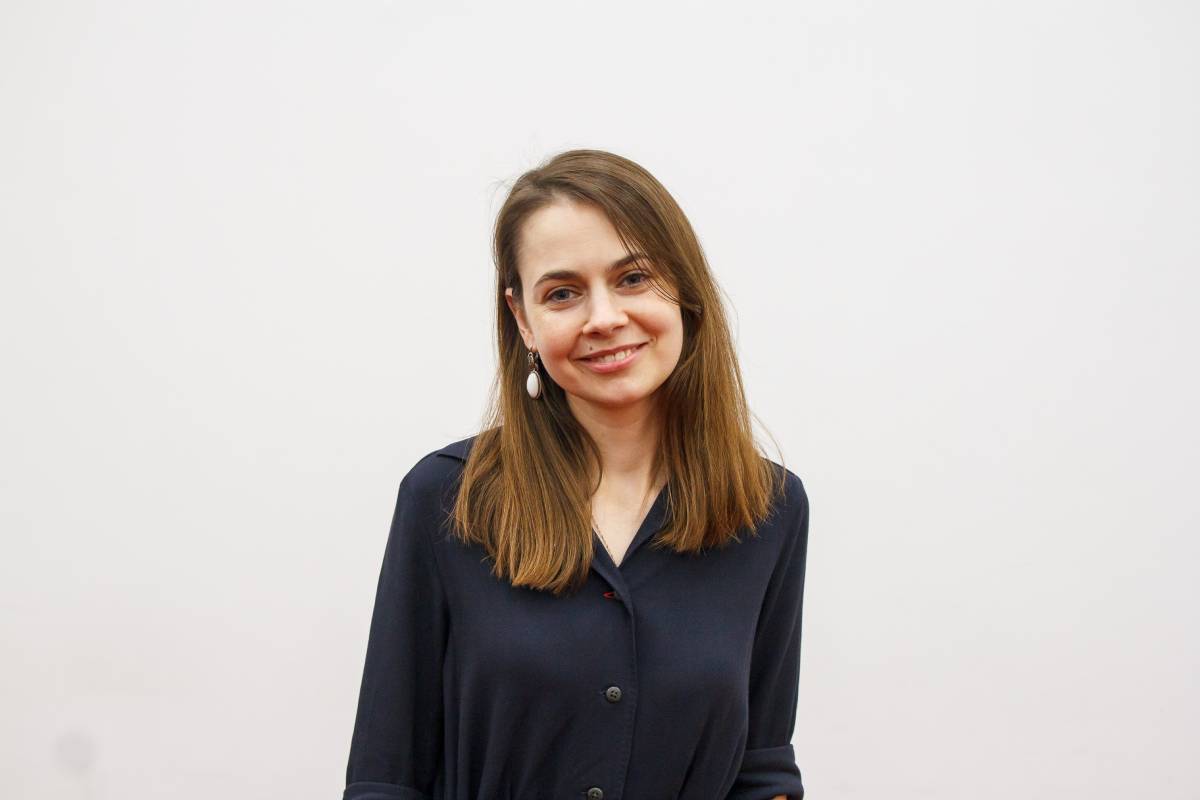‘The Virtual City Is Joining the Real One at the Forefront’

HSE University has launched enrolment in a new online Master’s programme in Digital Urban Analytics. In this interview, the programme’s Academic Supervisor Ekaterina Zarudnaya and its Scientific Supervisor Kirill Puzanov speak about the processes and tasks generated by the online city, the demand for urban analysts, and the specifics of studying in the programme.

— What is the current state of urbanism in Russia?
— Ekaterina Zarudnaya: The current development stage of Russian and world urbanism is interesting because we are witnessing a rapid increase in the complexity of almost all urban processes. The level of digitalisation has increased greatly. City management digitalisation, big data, and digital technologies becoming part of residents’ daily lives—all these things are developing and require new approaches to planning and design.
That said, digitalisation does not simplify processes—it makes them more complex. The virtual city is joining the real one at the forefront, and it has rules of its own.
The only obvious thing at this stage is that an online city cannot be perceived as a copy of a physical one. It does not duplicate its processes, but rather changes them and generates new ones
This is incredibly interesting, as new knowledge areas are opening up before us. Complexity leads to an increase in diversity, which is a key urban resource. Design solutions in urban development require data integration, understanding the capabilities of analytical tools, and task-setting skills.
— How was the programme’s educational content formed and what is it based on?
— Kirill Puzanov: The city and its residents leave lots of digital traces every day, and certain economic activities have moved online. Modern specialists should be a bit like digital trackers: they should be able to read these signs and use their knowledge of digital resources to justify urban development decisions.
But the traditional tasks of working with the city still remain. Modern specialists have to understand the economic and social context, the legal landscape, geographical patterns, etc. Our programme is based on the experience of the Graduate School of Urbanism at the Faculty of Urban and Regional Development. We already have a number of programmes within the field of urban development in our portfolio, and our teachers are urban development theorists and practicians with experience of implementing project, consulting and scientific work.

— Are urbanists in demand in the labour market? What professional tasks do they face?
EZ: The urban project market is developing rapidly. Employers need professionals who are able, on the one hand, to conduct basic analysis of the processes taking place in the city using appropriate tools and, on the other hand, to work as project managers and leaders of interdisciplinary teams.
— What qualities are you looking for in applicants?
EZ: The programme is designed primarily for early-career professionals with work experience seeking to obtain a broad and practice-oriented master’s education for career development. At the same time, we welcome not only those whose occupation is related to urban projects, but also professionals with a data analytics background who want to evolve in the field of urban analytics in all its diversity. The pool of elective disciplines includes the study of advanced work methods—from digital anthropology to machine learning. Such tools ensure that graduates of the programme are unique professionals with fundamentally new skills in substantiating design decisions and creating area development scenarios.
— What tracks and disciplines does the programme offer?
KP: There are four elements at the core of the programme: theoretical and instrumental bases, a management unit, and project work. Theory is indispensable for providing a comprehensive assessment of the quality of a project and its value to the development of the city in a global context. This includes urban regulation and area planning, economics, and sociology. Analytical tools comprise various methods of analysing city data: spatial, sociological, economic data, and more. Project management covers building a team, management, mechanisms of funding and project implementation, and the preparation of project and internal technical specifications. Project work involves preparing students to solve real analytical support tasks within a project. In terms of skills, we focus not only on hard skills, but also on soft ones: presentations, storytelling, teamwork, and communication with customers. The final stage of the programme involves defending a graduation project relevant to a specific urbanised area.

— How are studies organised?
EZ: The curriculum facilitates the widespread use of asynchronous and synchronous study modes. Some course lectures will be held online asynchronously, which allows the students to study theoretical materials at any time without being confined to a specific geographical location. Other classes involve forms of interaction that are as close to full-time studying as possible.
Special attention is paid to interactive work between students, teachers and experts in the form of regular webinars, discussions of team projects between students, and advisory support from teaching assistants. The programme includes workshops, field studies, debates, and presentations.
The online format allows specialists working in provincial regions to significantly improve their skills without leaving their city or pausing their work on current projects. The classes will take place mainly on weekday evenings and on Saturdays, which allows students to effectively combine work and studies. Recorded classes will be available to the students for the entire period of study.
More information on the online master’s programmes offered at HSE University is available in the course catalogue.
See also:
Researchers at HSE University Identify the Most Walkable Areas in Moscow
Experts at HSE University and Lomonosov Moscow State University examined the available data on Moscow's walkability and found the central and south-western parts of the city to be more walkable than others. However, the eastern and south-eastern areas are in need of improvements to make them more pedestrian-friendly. The study has been published in Cities.
HSE University Urban Planners Take Part in Global Mayors’ Forum in Guangzhou, China
A team from HSE University's Faculty of Urban and Regional Development took part in the Global Mayor’s Forum—a global event in urban development. Held in December 2023 in Guangzhou (PRC), the largest congress of urban planners brought together more than 800 guests from 65 cities and 37 countries, as well as nine international organisations.
Card File: Travel Diary
Optimising a city's transportation system requires insights into the dynamics of urban traffic to understand where, how, when, and to what extent people travel within the city. The rationale behind route selection and the choice of transportation mode are also of importance. The primary source of this data is the travel diary, a tool designed to survey people's transport behaviour. Based on a paper by Maria Sergienko, a master's student of the HSE Faculty of Urban and Regional Development, IQ.HSE examines how people's daily travel can be described in detail and why an automated diary cannot yet completely replace its manual counterpart.
‘Seeing Moscow Ranked First among the Cities of BRICS Countries Is Pleasant, but Not Surprising’
An international consortium of research organisations from China, India, and Russia, including HSE University’s Faculty of Urban and Regional Development represented by experts from the Vysokovsky Graduate School of Urban Studies and Planning and the Centre for Social Research and Technological Innovation (CITY), is developing an index of technological and spatial urban development (the Urban & Innovation Environment Index). Recently, a list of the top 10 largest cities of the BRICS countries was published on the project’s website. The Russian capital took the first place in the ranking, followed by Beijing, Shanghai, Sao Paulo, and Guangzhou.
Summer University 2023: ‘A Good Introduction to Urban Studies’
At the start of August, HSE University held the tenth annual Summer University. This year’s programme took the form of a workshop on urban studies. The participants attended four courses from HSE University faculty and invited experts and worked on their own projects to develop a cultural heritage site. Jung Woo Lee, from South Korea, shares his impressions of the Summer University.
A City in Your Mind: HSE Urbanists on Perceptions of Place and Imagined Neighbourhoods
Associate Professor Kirill Puzanov of the HSE Vysokovsky Graduate School of Urbanism and HSE University Professor Oleg Baevskiy have held lectures at the Red Square Book festival. They talked about perceptions of the city, its private and public aspects, chamber and representative spaces, and imaginary (or ‘vernacular’) areas. The open lectures took place as part of the HSE University Open to the City project.
Two Worlds of Residents: Car Owners Look at Shared Urban Courtyards Differently from Pedestrians
Researchers from HSE University and St. Petersburg State University of Architecture and Civil Engineering (SPSUACE) used eye tracking to study how residents who own cars and those who don’t look at the shared courtyards of multistorey apartment buildings. The study was published in Urban Forestry & Urban Greening.
Back to the Future: Is Manufacturing Returning to Cities?
Are cities set to become industrial centres again? Are migrants integrating in Russia? How are city dwellers taking advantage of micro-mobility? Experts from the HSE Faculty of Urban and Regional Development (FURD) took part in Moscow Urban Forum. This year the topic of the Forum was ‘Superstar Cities: Transforming for Success’.
‘It Takes a Team to Develop a City’
What is urban planning? What is the ‘stranger effect’ and why do we need a multidisciplinary approach in education? School Head and Associate Professor Kirill Puzanov spoke with the News Service about what students learn and how in the Vysokovsky Graduate School of Urbanism, which celebrates its 10th anniversary this year.
‘My Entire Two Years of Studying at HSE University Were Very Happy’
Maria Melnikova, a graduate of the HSE Vysokovsky Graduate School of Urbanism Master’s programme inUrban Development and Spatial Planning, has written a book entitled Not Just Prefabs: The German Experience of Working with Mass Housing Neighbourhoods. She describes how Germany investigates and solves problems of housing in the city suburbs. Maria spoke with the HSE News Service about her interest in this topic, what she thinks about urban renewal and what she does in Berlin.


